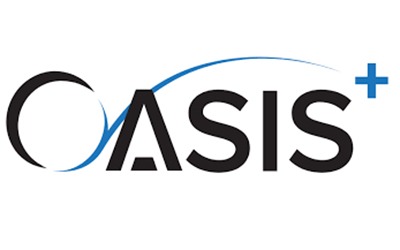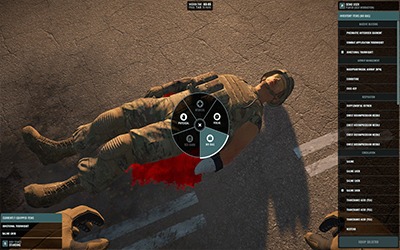Engineering & Computer Simulations (ECS) is pleased to announce that Matthew (Matt) Becchio will be the integrated product team (IPT) industry lead (or chair) for the Serious Games Showcase & Challenge (SGS&C) at 2024’s Interservice/Industry Training, Simulation and Education Conference (I/ITSEC).
A software engineer at ECS, Becchio has previous experience working with SGS&C as an intern, a finalist, and a committee member. As IPT industry lead of the 2024 competition, he will ensure milestones and deadlines are met, and other activities flow smoothly in preparation for the event, such as managing submissions and the evaluator pool, as well as other operational and logistical concerns.
The SGS&C spotlights new ideas, concepts, and innovations in serious games development, and it garners special attention every year at I/ITSEC., Organized and sponsored by the National Training & Simulation Association, I/ITSEC is the world’s largest modeling, simulation, and training (MS&T) event. The competition is open to a wide variety of contestants, to include university students, government agencies, government contractors, companies, and any other organization that is developing serious/educational games.
Becchio said SGS&C’s goal is to elevate serious games, and gaming content submitted to the contest can range from cybersecurity and government defense, to how to read a college laboratory manual or general physics for high school students.
“The committee gets together to play and evaluate all the submitted games and we determine the finalists based on a set of criteria and a survey system,” explains Becchio. “The awards are determined by a pool of evaluators who are professionals in serious and educational games – it’s a large pool of all types of career paths. The finalists chosen by the IPT are featured at I/ITSEC where they are invited to showcase their games.”
Becchio was pursuing his bachelor’s in digital media-game design at the University of Central Florida, when he first got involved with SGS&C in 2017 with a game called “Tootin’ Pooches.” It was originally made for the Indie Galactic Game Jam and later submitted to SGS&C where it won the Best Student Developed Game Award.
“I led a team to develop a game about farting dogs in space who play soccer,” Becchio said. “My professor worked with Limbitless Solutions, a UCF nonprofit that makes 3D-printed, prosthetic limbs for kids. The goal of the game was to teach kids how to effectively use their prosthetic limbs with specialized controllers that required them to develop certain muscle groups.”
He went on to work with SGS&C as an intern for a semester, later became a committee member, and worked his way up through various subcommittees. Recently, he was asked to be IPT industry lead for the 2024 competition.
“As a finalist and an intern, I’ve seen both sides of this competition,” Becchio said. “When you work your way up, you get to see how all the bricks are laid. As I go into subcommittees now as the IPT industry lead, I understand where certain puzzles pieces need to be placed.”
Becchio also credits a good portion of his professional success to his involvement with SGS&C. He had recently graduated college when he met ECS’ current chief technology officer, Shane Taber, who was serving on the same SGS&C committee. While working together, Becchio learned of a vacancy that ECS was looking to fill.
“Shane gave me his card, and within a couple weeks an interview was set up and I was hired,” Becchio said. “I’ve been working at ECS for the past five years.”
“Matt’s love for serious games is clear in all his work,” said Shane Taber. “We’re really proud of what he’s done and how hard he’s worked to raise the standards and awareness for serious game development in our community.”
Becchio’s noted that his goal as IPT industry lead this year is to get more submissions from beyond the “government bubble.”
“A lot of the most interesting games come from the general public,” Becchio said. “The biggest thing I’d like to see is just getting the word out that if [any organization] has an educational game, then submit it. It could win multiple awards.”
Games that show consideration for the user experience can be especially competitive in the SGS&C competition, according to Becchio.
“A lot of games only concentrate on the training goal, and the user experience that advocates for the player can get lost,” Becchio said. “In games developed for government solutions, I see that often and it’s pretty standard in this industry. What I really like to see are games that demonstrate care for the user experience in what interests the players, what engages them best, and what keeps them captivated.”
Becchio emphasized that he’d like to get more Central Florida students exposed to the serious gaming industry.
“There’s a lot of talent coming out of colleges that this industry can really learn from,” Becchio said. “I’d like to get the message out that there are many opportunities – especially in Orlando, the MS&T capital in the U.S. – to apply game design skills and knowledge locally.”



